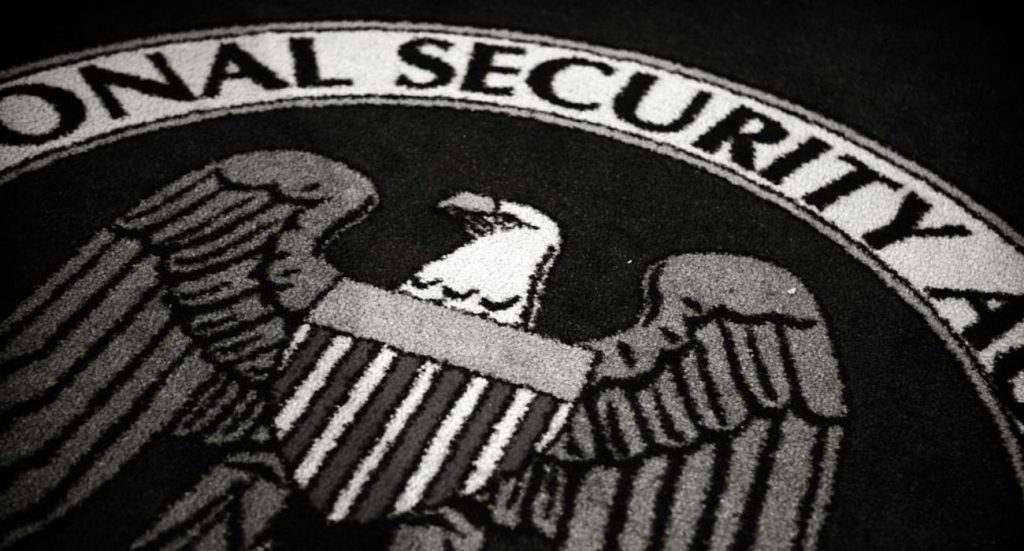The recently approved Foreign Intelligence Surveillance Act reauthorization bill may include a provision that some argue will make almost the entire internet infrastructure serve as the surveillance arm of the National Security Agency.
The reauthorization of FISA has advanced to the Senate with Section 702, which allows spying on Americans without a warrant, still in place despite efforts to restrict its provisions by Republicans and some Democrats.
Shortly after that, observers pointed out that, instead of having the same alleged government overreach provisions as before, Section 702 now includes new language that actually enhances the government’s ability to surveil Americans’ communications without their knowledge.
That was the evaluation of Elizabeth Goitein, co-director of the Liberty and National Security Program at the Brennan Center for Justice, who warned that the language of Section 702 has a revision that redefines “electronic communications provider.” According to the current wording, “companies like Verizon and Google must hand over the communications of the targets of Section 702 surveillance,” as explained by Goitein.
However, the proposed new definition of “electronic communications surveillance provider” has been expanded to include “any other service provider who has access to equipment that is being or may be used to transmit or store wire or electronic communications.”
According to Goitein, if the new definition becomes part of the law, it would significantly affect the privacy many Americans take for granted.
“If the bill becomes law, any company or individual that provides ANY service whatsoever may be forced to assist in NSA surveillance, as long as they have access to equipment on which communications are transmitted or stored — such as routers, servers, cell towers, etc.,” she said.
Goitein’s take was endorsed by former NSA intelligence contractor and whistleblower Edward Snowden, who reposted her X thread on the matter while commenting, “The NSA is just DAYS from taking over the internet, and it’s not on the front page of any newspaper — because no one has noticed.”
The suggested increase in government powers is the latest aspect of Section 702 that has privacy advocates from both political parties in Congress accusing the federal authorities of violating the Fourth Amendment.
Sen. Ron Wyden (D-OR) released a statement on Tuesday echoing his statements on the proposed expansion of FISA 702 on the Senate floor, stating, “There is a key question here: who should be forced to help their government spy?”
“Now, if you have access to any communications, the government can force you to help it spy,” Wyden said about the version of 702 being considered by the Senate. “That means anyone with access to a server, a wire, a cable box, a Wi-Fi router, a phone, or a computer. Think about the millions of Americans who work in buildings and offices in which communications are stored or pass through.”
Wyden also warned that the new law is especially insidious because any entity compelled to assist with the spying would be forced to keep it secret.
The FISA Court won’t be aware of these activities, and neither will Congress. The people who receive these orders won’t be allowed to talk about it, and unless they have expensive lawyers with security clearance, they won’t have any way to challenge it.
Wyden advised his fellow lawmakers not to rush into approving a flawed bill due to time pressure and suggested that Section 702 should be revised to protect Americans' privacy. He also stressed that the Senate should not be intimidated into blindly approving whatever the executive branch requests.
Senator Rand Paul, who strongly criticizes FISA, expressed a similar view.
He emphasized the need for a discussion on whether it's appropriate for the government to spy on its citizens without a warrant, considering there has been plenty of time for debate over the past five years. said, according to The Hill.
FBI Director Chris Wray stated that if Section 702 is not reauthorized by April 19, it will put national security at risk. However, a recent court ruling will allow the program to continue for another year even if it's not renewed in time, as reported by The New York Times. reported The New York Times.
Meanwhile, Rep. Jim Himes (D-CT), who co-sponsored the amendment that Goitein alleges gives the government the “ability to force ordinary businesses and individuals to serve as surrogate spies,” took to X to dismiss critics of the provision.
Responding to Sean Vitka’s characterization that his FISA amendment “facilitates Stasi-like powers, very plausibly for Trump,” Himes replied, “[L]ife is really too short to engage with people who need to use bombastic absurdities like ‘Stasi-like’. Yes I know exactly what is in there. Some of it is classified. And none of it is remotely ‘Stasi-like’. Sell your nonsense elsewhere.”
“Stasi” is a reference to the secret police agency of East Germany from 1950 to 1990 that surveilled and controlled East German citizens using a vast network of civilian informants.
The battle over Section 702 is part of a broader pattern of cases where federal agencies have been accused of misusing their power for political purposes. As The Dallas Express has previously extensively covered, the FBI has repeatedly been accused of overreach and invasions of privacy, including by having banks turn over any customer transaction records referencing “Trump” or “MAGA” as part of the investigation into January 6 protests at the U.S. Capitol building.



